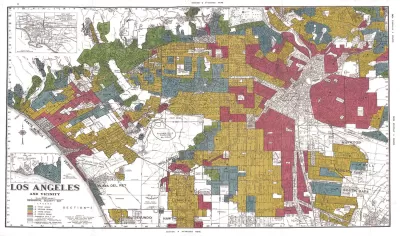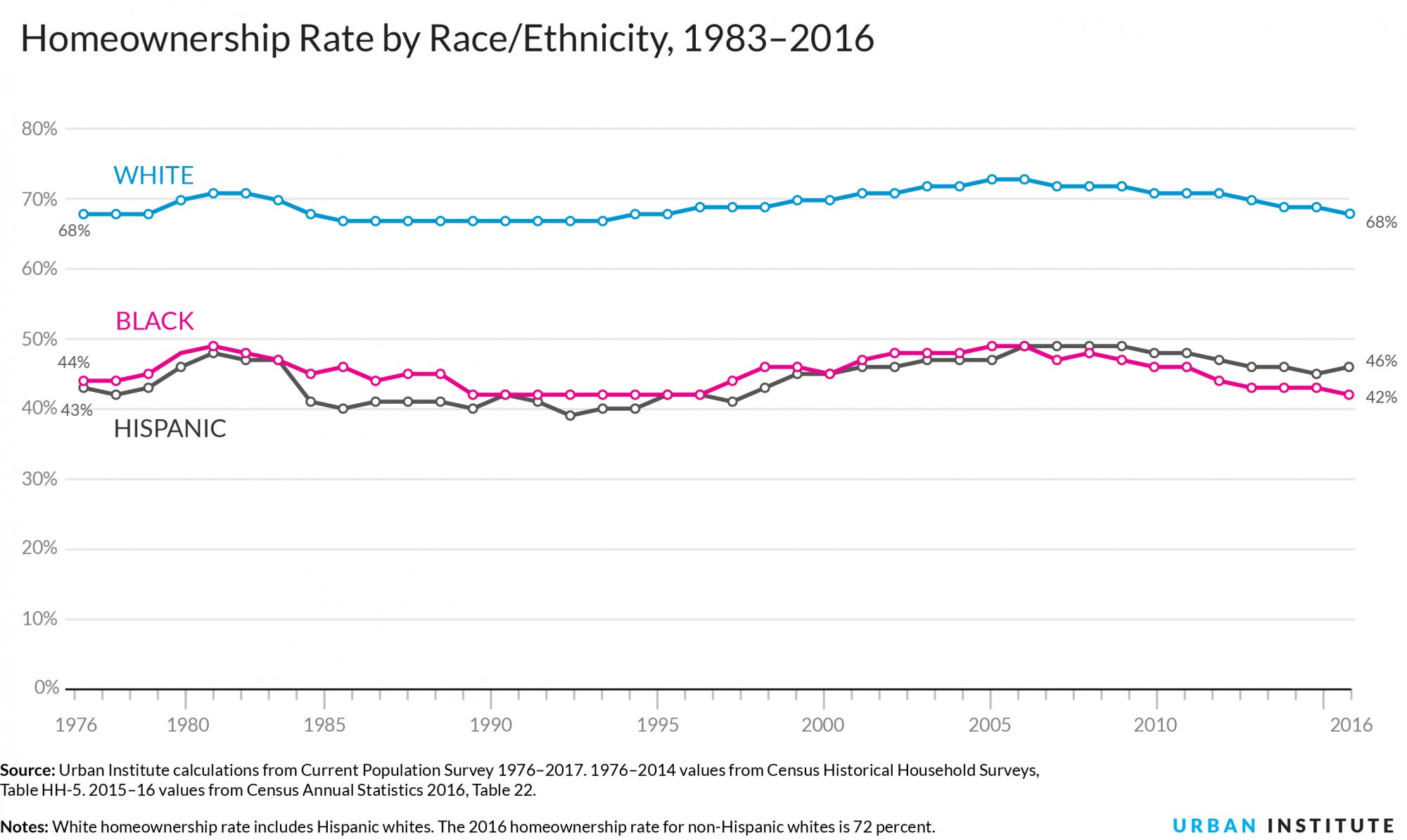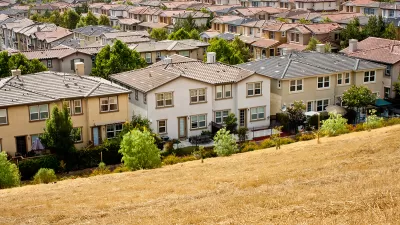Any way you slice it: the rich get richer, and the poor get poorer.

The Urban Institute shares a series of infographics—built on research by Signe-Mary McKernan, Caroline Ratcliffe, C. Eugene Steuerle, Caleb Quakenbush, and Emma Kalish—that show why wealth inequality hasn't improved over the past 50 years, and, in particular, why the racial wealth gap has not closed.
According to the post, "income inequality, earnings gaps, homeownership rates, retirement savings, student loan debt, and lopsided asset-building subsidies have contributed to these growing wealth disparities."
For instance, homeownership rates show Black and Hispanic families trailing White families in homeownership.

The post concludes by listing policy recommendations that can make a difference to the country's growing inequality.
FULL STORY: Nine Charts about Wealth Inequality in America (Updated)

Planetizen Federal Action Tracker
A weekly monitor of how Trump’s orders and actions are impacting planners and planning in America.

Map: Where Senate Republicans Want to Sell Your Public Lands
For public land advocates, the Senate Republicans’ proposal to sell millions of acres of public land in the West is “the biggest fight of their careers.”

Restaurant Patios Were a Pandemic Win — Why Were They so Hard to Keep?
Social distancing requirements and changes in travel patterns prompted cities to pilot new uses for street and sidewalk space. Then it got complicated.

Platform Pilsner: Vancouver Transit Agency Releases... a Beer?
TransLink will receive a portion of every sale of the four-pack.

Toronto Weighs Cheaper Transit, Parking Hikes for Major Events
Special event rates would take effect during large festivals, sports games and concerts to ‘discourage driving, manage congestion and free up space for transit.”

Berlin to Consider Car-Free Zone Larger Than Manhattan
The area bound by the 22-mile Ringbahn would still allow 12 uses of a private automobile per year per person, and several other exemptions.
Urban Design for Planners 1: Software Tools
This six-course series explores essential urban design concepts using open source software and equips planners with the tools they need to participate fully in the urban design process.
Planning for Universal Design
Learn the tools for implementing Universal Design in planning regulations.
Heyer Gruel & Associates PA
JM Goldson LLC
Custer County Colorado
City of Camden Redevelopment Agency
City of Astoria
Transportation Research & Education Center (TREC) at Portland State University
Camden Redevelopment Agency
City of Claremont
Municipality of Princeton (NJ)




























